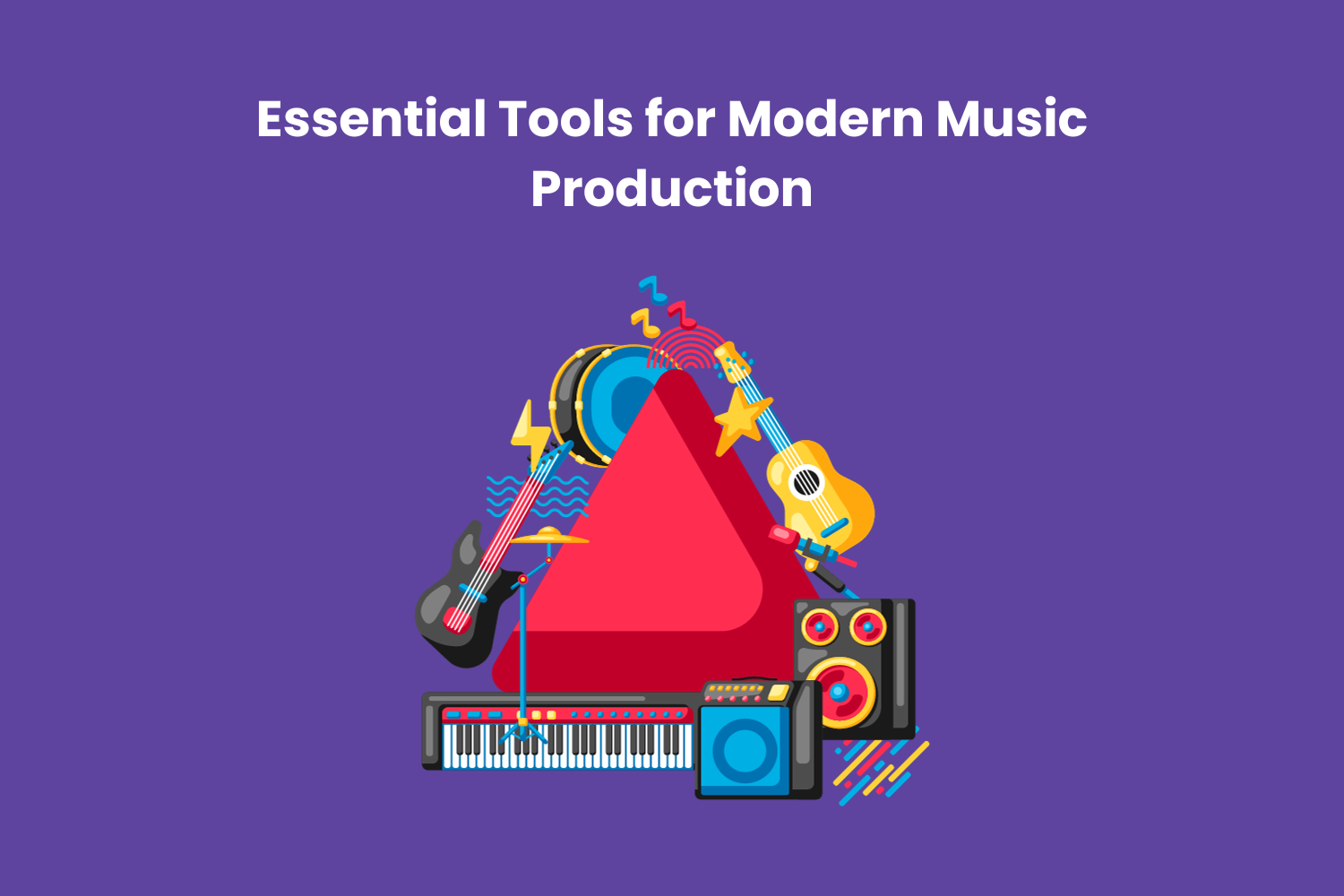Essential Tools for Modern Music Production

In creative expression, few hobbies and interests rival the immersive and captivating world of music production. What was once a niche field reserved for the professionals has now become an accessible endeavor for anyone with a passion for crafting sonic landscapes. Before delving into the heart of What is Music Production, it’s essential to understand the array of tools that form the backbone of this art. In this blog, we’ll explore the essential tools that have become indispensable for modern music production and the significance of Hobbies and Interests Training.
Contents
- 1 What is Music Production? Unveiling the Art of Sound Crafting
- 2 The Digital Audio Workstation (DAW): The Nexus of Creativity
- 3 MIDI Controllers: Bridging the Physical and Digital Realms
- 4 Virtual Instruments and Sample Libraries: Orchestrating Infinite Possibilities
- 5 Audio Interfaces: Capturing the Essence of Sound
- 6 Conclusion
What is Music Production? Unveiling the Art of Sound Crafting
Transforming sound into a cohesive and captivating musical composition is known as music production. It requires a blend of technical proficiency, aesthetic awareness, and in-depth knowledge of several instruments and technology. Producing music takes a musical idea from its inception to the finished, polished output.
The progress of music production has been revolutionary in the digital era. Digital workstations that are powerful and stylish are replacing the days of conventional recording studios that were packed with heavy equipment. Aspiring musicians and producers may create creative centres that can compete with professional setups in their bedrooms or home studios with the correct gear.
The Digital Audio Workstation (DAW): The Nexus of Creativity
The Digital Audio Workstation is the central component of contemporary music production (DAW). The main hub used by producers and artists to write, record, edit, and mix their music is this program. Well-known DAWs with a sizeable virtual instrument library, abundant audio effects, and an intuitive interface include Ableton Live, FL Studio, and Logic Pro X.
Anyone wishing to go into music production must dedicate time to DAW training. Understanding the nuances of your preferred DAW will enable you to fully use its extensive feature set and unlock your creative potential. In-depth DAW instruction is available via many online tutorials and courses, transforming your love of music into a skill set that can be honed and polished.
MIDI Controllers: Bridging the Physical and Digital Realms
Controllers for the Musical Instrument Digital Interface (MIDI) link the digital and analogue worlds of music creation. With the tactile sense of conventional instruments, these gadgets provide creators control over software settings and virtual instruments. MIDI controllers, whether keyboard, pad controller, or electronic drum set, improve your DAW’s expressiveness and add a human touch to digital creation.
Using a MIDI controller may be a fulfilling experience for those who combine their interests and hobbies. It gives the creative process a new level of interaction and gives the impression that producing music is a vibrant, hands-on affair. You may add the subtleties that make each track distinctly yours to your creations with the correct MIDI controller.
Virtual Instruments and Sample Libraries: Orchestrating Infinite Possibilities
With the wide range of virtual instruments and sample libraries available in modern music creation, producers may access many sounds without using fundamental tools. The options are endless, ranging from state-of-the-art synthesisers to realistic orchestral arrangements. Purchasing top-notch virtual agents may improve your compositions by giving your sounds more depth and richness.
Using virtual instruments to explore various genres and styles may be a fascinating experience for those who want to combine their interests and pastimes smoothly. Virtual agents allow you to experiment and explore various musical worlds, regardless of your preference for the throbbing synthesisers of electronic dance music or the beautiful strings of classical music.
Audio Interfaces: Capturing the Essence of Sound
Even with the significance of digital technology in music production, the value of excellent audio capture cannot be emphasised. As the link between your analogue instruments and the digital realm, audio interfaces guarantee crystal-clear audio when you record. The foundation of a production that sounds professional is a dependable audio interface, regardless of whether you’re recording guitars, vocals, or any other live instrument.
Audio interface proficiency is a must to get the best possible recording results. Gain staging, signal flow, and mic placement can help you correctly capture the soul of your performances. Aspiring producers may refine their audio interface use abilities with many internet resources, ranging from introductory lessons to sophisticated instructions.
Conclusion
Within the field where passions and hobbies collide with formal education, music production is a shining example of a creative path that may be gratifying and life-changing. The fundamental instruments covered here are the cornerstones for creating immersive audio experiences. Every device is essential to the current state of music composition, from the tactile engagement enabled by MIDI controllers to the limitless possibilities of a DAW.





